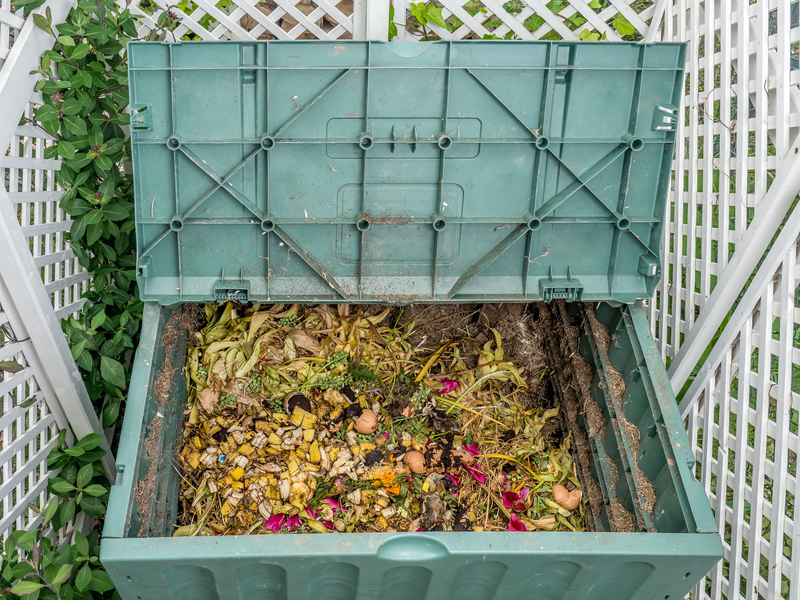The Impact of Waste Clearance Services on Environmental Health
Waste clearance services play a significant role in maintaining a clean and healthy environment. As global waste production rises, the efficient and responsible management of household, commercial, and industrial waste has become paramount. This article will explore how different waste clearance companies and practices influence environmental health, prevent pollution, conserve natural resources, and contribute to a sustainable future. Understanding the impact of waste disposal services empowers individuals, businesses, and communities to make greener choices and reduce their ecological footprint.

Understanding Waste Clearance Services
Before delving into the environmental impacts, it's important to define what waste clearance services encompass. These services typically involve:
- Collection of waste from residential, commercial, or industrial sites
- Transport of waste to transfer stations, recycling centers, or landfills
- Sorting and recycling of waste materials whenever possible
- Responsible disposal of non-recyclable or hazardous waste
- Specialised services for items like e-waste, yard waste, bulky furniture, and construction debris
Proper waste management services go beyond just removal -- their practices and policies can significantly affect both local and global environmental outcomes.
How Inefficient Waste Clearance Harms Environmental Health
1. Air and Water Pollution
Improper waste clearance can lead to hazardous toxins leaching into waterways or harmful substances entering the atmosphere. Open burning of waste and illegal dumping are common practices in areas lacking robust waste management, resulting in:
- Release of greenhouse gases (such as methane and carbon dioxide) that contribute to climate change
- Leachate from landfill sites contaminating local groundwater and soil
- Spread of microplastics and other persistent pollutants in aquatic ecosystems
Efficient waste removal services implement rigorous procedures to minimize these risks.
2. Wildlife and Ecosystem Damage
Improperly discarded waste harms animals and plants in many ways. Plastic bags, bottles, and other debris can entangle or be ingested by wildlife, often with fatal results. Chemical contaminants disrupt fragile food chains and reduce biodiversity. Robust rubbish removal, recycling, and responsible waste processing dramatically reduce the impact on local flora and fauna.
3. Public Health Risks
Uncollected trash creates breeding grounds for vermin, mosquitoes, and other disease vectors. Overflowing bins and dumps are associated with outbreaks of respiratory illnesses, gastrointestinal diseases, and even more severe health threats. Professional rubbish clearance services keep communities safer and healthier by ensuring waste is collected regularly and disposed of correctly.
How Waste Clearance Services Benefit the Environment
When done responsibly, the impact of waste removal services on environmental health is overwhelmingly positive. Let's examine how these services support sustainability and ecological well-being.
1. Reduction in Landfill Reliance
Landfills are the least desirable option for waste disposal as they consume precious land, emit methane, and risk soil and water contamination. Modern waste clearance companies sort materials to maximize recycling and resource recovery. This reduces landfill dependence, prolongs landfill lifespan, and promotes circular economy principles.
2. Promotion of Recycling and Reuse
The best waste disposal services work in partnership with recycling facilities and upcycling initiatives. By separating paper, metals, glass, and plastics, they ensure that valuable resources are put to good use rather than wasted. Construction waste clearance services, for example, can divert tonnes of materials from the dump by salvaging wood, steel, and concrete for reuse.
- Conserved energy (as recycling materials often uses less energy than manufacturing new ones)
- Lower greenhouse gas emissions
- Reduced demand for raw materials, which lessens mining and deforestation
3. Proper Disposal of Hazardous Waste
Certain waste streams--like batteries, electronics, paints, or pesticides--require specialised handling to prevent pollution. Certified waste clearance firms know how to manage hazardous materials safely, ensuring they do not enter landfills or the natural environment. This protects both current and future generations from exposure to toxic substances.
4. Supporting Community Education and Participation
Many waste collection agencies run public awareness campaigns or offer guidelines on recycling, composting, and sustainable consumption. By educating consumers and businesses, they foster habits that reduce waste generation at its source and increase proper sorting.
The Environmental Cost of Illegal Dumping and Fly-Tipping
One of the gravest threats to environmental health is illegal dumping (also known as fly-tipping). When unscrupulous individuals or companies evade proper clearance processes to cut costs, the results include:
- Soil and water contamination from unregulated dumps
- Visual blight, decreasing property values and tourism
- Increased fire hazards and risk to local wildlife
Strict licensing and regulation of waste disposal companies--as well as severe penalties for illegal operators--are crucial for protecting environmental health.
Key Features of Environmentally Responsible Waste Clearance Services
1. Transparent Recycling Policies
Top-rated removal companies provide detailed information on their sorting, recycling, and disposal procedures. Look for providers who prioritize diversion from landfill and can demonstrate a high percentage of recycled or repurposed materials.
2. Compliance with Regulations
Legitimate waste management firms follow all local and national guidelines for the handling, transport, and disposal of waste. This is especially important for hazardous or electronic waste.
3. Use of Eco-Friendly Fleets and Methods
Many companies invest in fuel-efficient vehicles, schedule optimized collection routes, and use digital documentation to reduce paper waste and carbon emissions during the clearance process.
4. Support for Local Recycling and Charity
Responsible removal services often direct reusable items to local charities, second-hand shops, or recycling centers, thus extending the life of products and supporting the community.
Consumer Choices: Selecting the Right Waste Clearance Service
Steps to Take as an Individual or Business
- Verify Registration: Always ensure your chosen waste clearance company is registered and insured. This minimizes the risk of illegal dumping.
- Ask About Recycling: Inquire about recycling rates and where your waste will end up. Eco-conscious firms are happy to provide these details.
- Request Documentation: Reputable services provide paperwork confirming proper disposal of your waste, including hazardous items.
- Reduce, Reuse, Recycle: Before booking a clearance service, see if you can donate, repair, or recycle items yourself. This cuts overall waste and promotes a culture of sustainability.
- Compost Organics: Organic kitchen and garden waste can usually be composted, reducing strain on both removal services and landfill sites.
Choosing the right provider both safeguards your interests and supports broader environmental objectives.
Role of Policy & Innovation in Waste Clearance Services
Regulations Driving Change
Many governments have introduced mandates for recycling rates, landfill reduction, and e-waste disposal. Policy incentives--such as landfill taxes, extended producer responsibility, and local recycling targets--encourage waste clearance services to adopt greener practices and invest in innovation.
Technological Advancements
Smart bins, real-time route optimization, AI-driven material sorting, and app-based waste booking systems are revolutionising the waste management industry. These advanced solutions help:
- Increase recycling rates
- Reduce costs and carbon emissions
- Provide data-driven insights to further enhance environmental outcomes
Community Engagement in Waste Clearance
Involving local communities in the process is crucial. Educational programs, community clean-ups, and participatory recycling schemes make environmental health a shared responsibility. Waste clearance firms that collaborate with residents and local governments foster a sense of ownership and pride, resulting in cleaner neighborhoods and healthier environments.

The Future: Striving for Zero Waste
The ultimate goal for society is a zero waste approach, where waste generation is minimized, and everything possible is recycled, composted, or reused. Waste clearance services are pivotal in this transition by:
- Encouraging source separation
- Partnering in circular economy initiatives
- Investing in composting and advanced recycling technologies
As consumer awareness and regulations grow, waste clearance companies must continuously innovate to lessen environmental impact.
Conclusion
Waste clearance services impact environmental health in profound ways. From protecting air, water, and soil quality, to promoting recycling and deterring illegal dumping, these services are an essential pillar of modern sustainability efforts. By choosing responsible waste disposal companies, supporting local recycling initiatives, and advocating for robust regulations, everyone can play a role in securing a cleaner, greener planet for generations to come.
Whether you're a homeowner, a business, or a municipal leader, understanding the vital connection between waste removal services and environmental health is the first step toward a more sustainable and harmonious world.